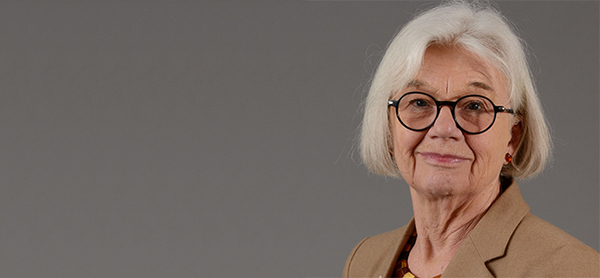To foster trust must be a goal of science

Many people in Europe and around the world are doubtful of research findings – be it on climate change or on other topics. What can scientists, research institutions and funders do to win their trust?
Delivering high-quality research is of course a central requirement. However, it is just as important that people have a basic trust in science. How can such trust be nurtured?
Good communication
I’d like to start by taking a look at communication. How many researchers are able to provide an interesting glimpse of their work in a few easily understandable sentences? Many would like to communicate, but can’t manage to find the time – or maybe the merit system does not sufficiently incentivise communication.
The European Researchers’ Night is an initiative aimed at improving communication. Another such initiative is the Swedish Researchers’ Grand Prix; to win it, researchers need to present their work not only understandably, but also as crisply and inspirationally as possible.
Should funding organisations also finance good interaction between people in academia and in society at large? Yes, of course. Funding promising communication projects, as the SNSF does, is an important step forward. As are the networks between researchers and potential users envisaged in its multi-year programme 2021–2024. But we are open to other ideas as well.
Responsibilities, both internal and external
Trust can also be fostered if the research community respects certain values. Scientific freedom comes with responsibility – an aspect that is rarely mentioned by scientists. The Magna Charta Universitatum, which embodies the basic values guiding higher education and research, has been the yardstick for the past 30 years. It is due to be updated in September 2020 in Bologna. Integrity and responsibility will be among the subjects contemplated in the new document.
For me, academic responsibility has two aspects. On the one hand, there is the responsibility that we have towards the outside world. This involves science responding to society’s needs and engaging in dialogue with the public. On the other hand, we are responsible to ourselves. For pursuing excellence and preventing misconduct, for example, or striving for openness and equality.
The SNSF expects the projects it finances to meet the highest standards of quality and integrity. It conducts finely tuned selection procedures involving panels of respected experts and thousands of peer reviewers around the world. This enhances credibility. In spite of this, my view is that more effort is needed inside and outside academia to foster trust.
Generating ideas for the SNSF
Since 2018, the International Advisory Board has provided ideas and recommendations aimed at helping the SNSF develop its role and strategy in the long term. Alongside Agneta Bladh, the other members of the Advisory Board are: Caroline Bassett (University of Sussex), Pearl Dykstra (University of Rotterdam), Frank Miedema (University of Utrecht) and Willi Paul (Consenec). Together, they possess a wealth of experience of different aspects of science.